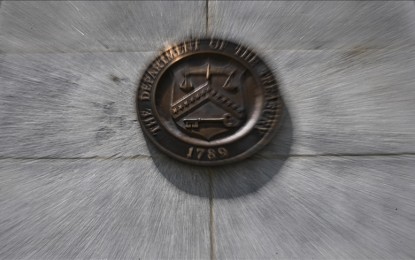
CYBERCRIME. The US Department of the Treasury on Tuesday said it has sanctioned three individuals and three entities connected to a cybercrime network. It said the individuals have activities related with the malicious botnet that compromised around 19 million IP addresses and facilitated fraudulent transactions related to the Coronavirus Aid, Relief and Economics Security Act programs of the users. (Photo by Anadolu)
ISTANBUL – The US Treasury Department has sanctioned three individuals and three entities related to a cybercrime network.
Yunhe Wang, Jingping Liu and Yanni Zheng are designated for their activities associated with the malicious botnet tied to the residential proxy service known as 911 S5, the US Treasury said in a statement on Tuesday.
"These individuals leveraged their malicious botnet technology to compromise personal devices, enabling cybercriminals to fraudulently secure economic assistance intended for those in need and to terrorize our citizens with bomb threats," Under Secretary Brian Nelson said.
Spicy Code Company Limited, Tulip Biz Pattaya Group Company Limited and Lily Suites Company Limited were also sanctioned for being owned or controlled by Wang.
The 911 S5 botnet was a malicious service that compromised victim computers and allowed cybercriminals to proxy their internet connections through the computers, according to the statement.
The botnet compromised about 19 million IP addresses and facilitated the submission of tens of thousands of fraudulent applications related to the Coronavirus Aid, Relief and Economic Security Act programs by its users, resulting in the loss of billions of dollars to the US government, it added.
"Cybercriminals covet stolen residential IP addresses to obfuscate malicious activity, particularly when carrying out credit card theft," the statement said. "911 S5 essentially enables cybercriminals to conceal their originating location, effectively defeating fraud detection systems." (Anadolu)
